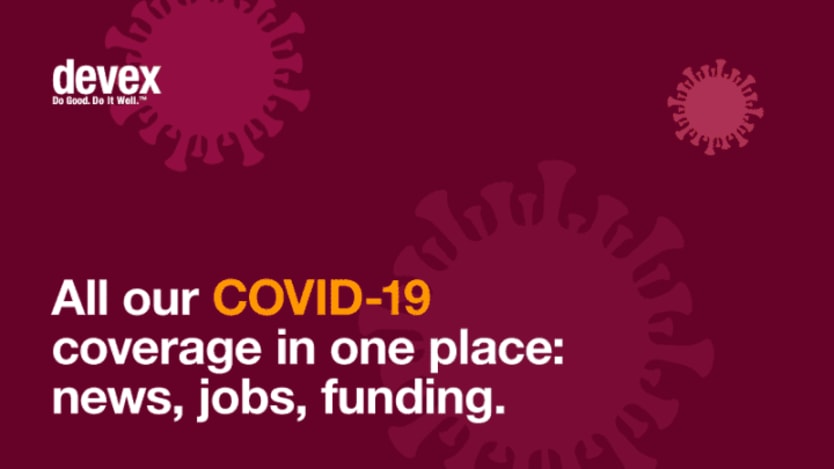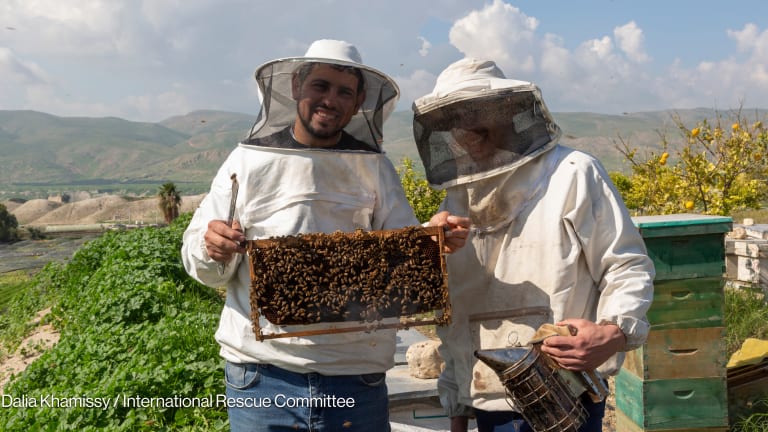
BURLINGTON, Vt. — Not only will the COVID-19 pandemic force upward of 100 million people into extreme poverty, but it will also reshape what extreme poverty looks like, according to a new analysis from the World Bank.
According to the bank’s latest projections, people who see their incomes fall below $1.90 per day — the international poverty line — due to the pandemic are more likely to be “urban, better educated, and less likely to work in agriculture than those living in extreme poverty before COVID-19.” The bank’s “Poverty and Shared Prosperity 2020” report, released on Wednesday, labels this group “the new poor.”
“Within countries, a large share of the extreme poor are rural, whereas many of the new poor are likely to live in congested urban settings, which can serve as a conduit for infection,” the report reads.
A World Bank survey in Uzbekistan, for example, found that 46% of urban respondents reported losing employment, compared to 37% of rural respondents. In Mongolia, 14% of urban respondents reported losing employment, compared to 9% in rural households.
“Many of the new poor are likely to be engaged in informal services, construction, and manufacturing — the sectors in which economic activity is most affected by lockdowns and other mobility restrictions as well as mandatory social distancing,” it continues.
The projections, based on estimates from 110 economies, find that people pushed into poverty by the pandemic are more likely to live in dwellings with better access to infrastructure, and to own more basic assets than those who had been poor prior to the pandemic. Those 15 and older are more likely to be paid employees in a sector other than agriculture, more educated than the “chronic poor,” but “significantly less educated than the nonpoor.”
While countries already struggling with high poverty levels are expected to see further increases, more than four-fifths of those forced into poverty by the pandemic — 72 million to 94 million — are expected to reside in middle-income countries. South Asia is projected to be the hardest hit region, with 49 million to 57 million people falling into poverty as a result of the pandemic.
These projections and findings have implications for the types of policies that might be effective in responding to the current COVID-19 crisis, the report argues. For example, while countries might already have some form of social safety nets in place for those currently living near or in poverty, these might not be designed to reach those who are newly impoverished by the effects of the pandemic.
“Safety net programs will need to adopt innovative targeting and delivery mechanisms, in particular to reach people in the informal sector in both rural and urban areas,” the report reads.
“For now ... the highest priority must be halting the spread of COVID-19 and responding effectively to the global economic crisis it has precipitated.”
— World Bank’s “Poverty and Shared Prosperity 2020” reportSome countries have taken action to meet these new needs. For example, Kenya redirected the government’s domestic and international travel budget toward COVID-19 response, and committed up to $20 million recovered from corruption proceeds toward programs tailored toward the urban poor. More than 50 countries have expanded their government-to-people cash transfer systems, according to the report.
Overall, the report paints a dire picture of the economic consequences of COVID-19, which it projects “will almost certainly be felt in most countries through 2030,” jeopardizing both the Sustainable Development Goals poverty eradication targets, and the World Bank’s own “twin goals” on eliminating poverty and boosting shared prosperity.
“Most countries have experienced drops in labor incomes of a magnitude rarely seen on the national scale,” the report warns.
It cites Nigeria, where 42% of respondents “who were working before the outbreak reported being out of work because of COVID-19 in May 2020,” and where nearly 80% of respondents reported income reductions since mid-March.
The report describes far-reaching impacts on food security. In seven countries in Latin America and the Carribean, 40% or more of respondents reported running out of food during lockdowns. In Nigeria, more than half of households reported reducing their food consumption — an economic coping strategy the report describes as “one of the first and potentially most destructive.”
“Depending on duration and severity, the impact of reduced food intake on children’s health, cognitive development, and future human capital accumulation, as well as on current adult health and productivity, may be substantial,” it reads.
In addition to stalling progress on fighting poverty, the bank projects the pandemic will also lead to greater economic inequality, driven by the destruction of small and micro enterprises, the long-lasting effects of unemployment on younger and low-skilled workers, and human capital losses sustained by disadvantaged households.
Even more concerning is that the projected impacts of COVID-19 are layered on top of two other global trends that the bank warns are also contributing to global poverty and threatening development goals: conflict and climate change.
Extreme poverty rates nearly doubled in the Middle East and North Africa between 2015 and 2018, from 3.8% to 7.2%, as a result of the conflicts in Syria and Yemen, according to the report.
In addition, the report cites new estimates that “132 million people may fall into poverty by 2030 due to the manifold effects of climate change.”
The bank notes that the same basic challenges underlie peoples’ vulnerability to these intersecting crises.
“The challenges that most poor people face most of the time are those they have always faced,” it notes.
These include, “insufficiently inclusive economic growth,” “limited accumulation of productive assets,” and “heightened exposure and vulnerability to risks.”
“For now, however, the highest priority must be halting the spread of COVID-19 and responding effectively to the global economic crisis it has precipitated,” the report states.
“The longer such responses are delayed, the more intense and consequential these effects will be, especially for the poorest and most vulnerable.”









